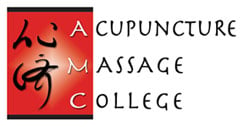Teens that sleep less than eight hours per night eat higher proportions of fatty foods and snacks than adolescents who sleep eight hours or more, according to a new study in the journal Sleep.
Short sleep duration may increase obesity risk by causing small changes in eating patterns that cumulatively alter energy balance, especially in girls. Shorter sleep duration is associated with an increase in the percentage of calories consumed from fats and a decrease in the percentage of calories from carbohydrates.
Teens who sleep less than eight hours per night consume 2.2 percent more calories from fats and 3 percent fewer calories from carbs than teens who sleep eight hours or more.
“The relative increase in fat consumption among shorter sleepers by 2.2 percent per day chronically may contribute to cumulative increases in energy consumption that would be expected to increase risk for obesity and cardiovascular disease,” says author Susan Redline, M.D., professor of medicine in the Division of Sleep Medicine at Brigham and Women’s Hospital.
There is also an association between sleep duration and snacking. For each one-hour increase in sleep duration, the odds of consuming a high amount of calories from snacks decrease by an average of 21 percent.
There are numerous pathways by which sleep loss may promote weight gain. Reductions in sleep duration may alter metabolic rate and affect hormones that regulate appetite. Sleep restriction may also initiate stress responses that promote overeating and reduce the motivation to exercise. Sleep may be the missing link in obesity interventions that focus only on diet and exercise.
The American Academy of Sleep Medicine recommends that teens get at least nine hours of sleep each night to feel alert and well rested during the day. Tips for improving sleep:
• Relax an hour before bedtime by reducing daily activities.
• Ensure lighting, sound and temperature are conducive to sleep.
• Exercise regularly.
• Avoid sleep medications.
Acupuncture & Massage College’s Community Clinic offers acupuncture, Chinese herbal medicine and massage therapy for the treatment of sleep disorders as well as a wide range of other health conditions. To schedule an appointment call (305) 595-9500. For information about AMC’s Oriental Medicine and Massage Therapy programs ask for Joe Calareso, Admissions Director.
Acupuncture and Massage College
10506 N Kendall Drive, MIAMI, FLORIDA 33176 |  (305) 595-9500
(305) 595-9500
 (305) 595-9500
(305) 595-9500







